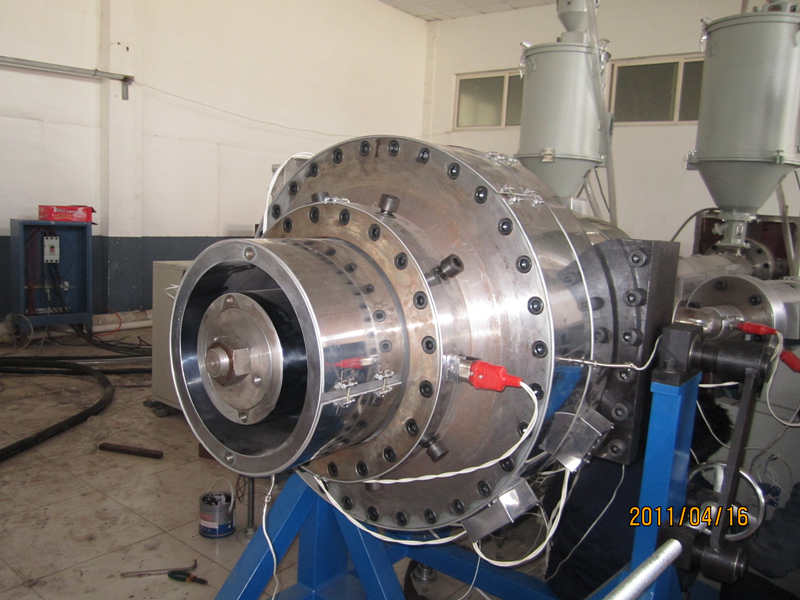Characteristics of Steel-Plastic Pipe Production Line
2025-06-23
A steel-plastic pipe production line is designed to produce composite pipes made from both steel and plastic materials, combining the benefits of both to meet specific requirements in construction, plumbing, and industrial applications. Here are the main characteristics:
1. Material Combination
The production line produces pipes by combining a steel core with a plastic outer layer, usually polyethylene (PE) or polyvinyl chloride (PVC). The steel offers strength, while the plastic provides corrosion resistance and flexibility.
2. Advanced Extrusion Technology
The production process often utilizes advanced extrusion techniques. The plastic is melted and extruded over the steel pipe, ensuring a consistent coating that is tightly bonded.
3. High Strength and Durability
Steel-plastic pipes combine the structural strength of steel with the flexibility and corrosion resistance of plastic. These pipes are particularly suited for use in high-pressure applications or environments with corrosive elements.
4. Corrosion Resistance
The plastic outer layer provides a protective barrier that prevents corrosion and scaling, making them ideal for transporting water, chemicals, or other materials in environments where corrosion would typically be a concern.
5. Cost-Effective
While steel-plastic pipes may have a higher initial cost compared to purely plastic pipes, their longevity, reduced maintenance costs, and resistance to environmental factors provide a better overall cost-performance ratio.
6. Environmental Benefits
Steel-plastic pipes are more environmentally friendly than traditional materials like pure metal pipes due to the use of plastic, which can be recyclable. Additionally, they often result in fewer maintenance and replacement needs over time.

7. Versatile Applications
These pipes are used in a variety of sectors including water distribution, sewage systems, and industrial pipelines. The steel core allows the pipes to withstand pressure and external forces, while the plastic coating offers resistance to harsh chemicals and environmental factors.
8. Customization and Flexibility
The production line can be customized to produce pipes of varying diameters, lengths, and thicknesses depending on the specific application needs. Moreover, the coating material can be adjusted for specific requirements like increased flexibility or UV resistance.
9. High Efficiency
Modern steel-plastic pipe production lines are designed for high production efficiency, offering automated systems for feeding materials, controlling extrusion, and ensuring quality control. This minimizes labor costs and maximizes throughput.
Conclusion
In conclusion, the steel-plastic pipe production line offers an innovative and efficient solution for manufacturing composite pipes that combine the best properties of steel and plastic. With applications in high-pressure systems and environments prone to corrosion, these pipes are durable, cost-effective, and versatile. Their ability to be customized for specific needs, coupled with high production efficiency, makes steel-plastic pipe production lines an excellent choice for industries requiring reliable, long-lasting piping solutions.
As a professional manufacturer and supplier, we provide high-quality products. If you are interested in our products or have any questions, please feel free to contact us.


